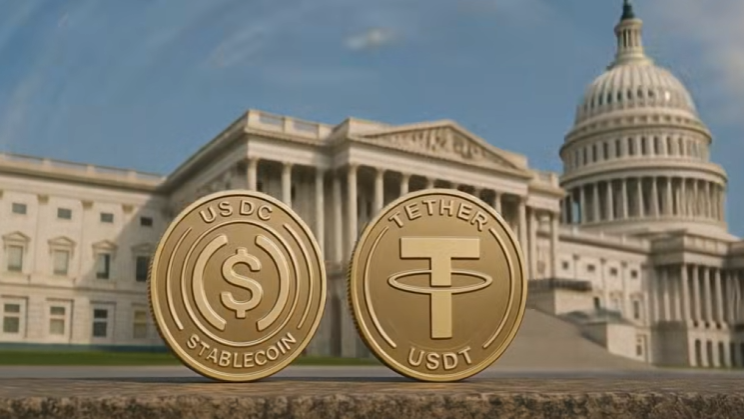 Nine Democratic senators announced that they will withdraw support for the landmark U.S. stablecoin legislation unless the bill is modified.
Nine Democratic senators announced that they will withdraw support for the landmark U.S. stablecoin legislation unless the bill is modified.
In a joint statement issued on May 3, the senators pointed out that the current version of the stablecoin bill (the Guiding and Establishing National Innovation for Stablecoins Act, or GENIUS Act) has some issues. The senators stated:
"While we are eager to continue working with our colleagues to address these concerns, we will not be able to vote to end debate if the current version of the bill is brought to the floor."
The statement was signed by Senators Raphael Warnock, Catherine Cortez Masto, Ben Ray Luján, John Hickenlooper, and Adam Schiff. Surprisingly, Senators Ruben Gallego, Mark Warner, Lisa Blunt Rochester, and Andy Kim were also among the signatories, despite supporting the bill when it passed the Senate Banking Committee in March.
However, it is worth noting that the two Democratic senators who co-sponsored the GENIUS Act with its main Republican sponsor, Senator Bill Hagerty - Kirsten Gillibrand and Angela Alsobrooks - did not sign the statement.
Senate Democrats Want Stronger Regulation in the GENIUS Act
The Senate Democrats noted in their statement that "Congress must establish clear rules and guidelines for stablecoins in a bipartisan manner." They stated that the lack of such regulation would leave consumers "unprotected and vulnerable".
However, they are determined not to support the bill unless modifications are made. They added:
"We approach this process with a constructive and open mind and understand that further improvements will be made to the bill."
The Senate Democrats believe that the GENIUS Act needs "stronger provisions in areas such as anti-money laundering, foreign issuers, national security, maintaining the safety and soundness of the financial system, and holding those who do not meet the bill's requirements accountable".
It is worth noting that these nine Democratic senators are not the only ones opposing the bill. Senator Elizabeth Warren, one of the bill's most staunch critics, warned that the bill could "give a green light to big tech companies and other business groups to issue their own stablecoins".
Last month, 20 community banking organizations also expressed opposition, believing the bill could replace traditional deposits and introduce new vulnerabilities to the financial system.
About the GENIUS Act
Hagerty is the author of the GENIUS Act, which he introduced on February 4, 2025. The bill aims to provide a regulatory framework for U.S. payment stablecoins. Therefore, the passage of the GENIUS Act would be the first step in establishing a comprehensive cryptocurrency regulatory system in the United States.
Under the proposed GENIUS Act, stablecoin issuers must ensure that each token issued is backed 1:1 by U.S. dollars, insured bank deposits, or short-term Treasury bills. Stablecoin issuers can also choose to be regulated by the Office of the Comptroller of the Currency (OCC) at the federal level or by state regulators.
The Senate Banking Committee passed the GENIUS Act with an 18-6 vote. According to Politico, Republicans subsequently modified the bill, hoping to win Democratic support. In fact, many of the modifications addressed the issues raised by Senate Democrats in their Saturday statement.
Republicans were so confident of bipartisan support that Senate Majority Leader John Thune formally proposed expediting the bill's consideration earlier this week. Senate Republicans had originally hoped to push for a full Senate vote on the GENIUS Act by the end of May.
According to Politico, the first procedural vote on the bill is expected as early as next week. However, the Senate Democrats' statement may obstruct the Republicans' plans while also giving them more leverage to demand further concessions.
The bill requires support from at least seven Democrats to pass in the Senate.
Senator Hagerty Responds to Democrats' Statement
In response to the Senate Democrats' statement, Hagerty said the United States should now advance legislation to ensure its leadership in digital assets and protect the dollar in the coming centuries. He added:
"We face a choice. Either move forward and make any necessary changes in a bipartisan manner, or signal that digital asset and cryptocurrency legislation remains a Republican-only issue."






